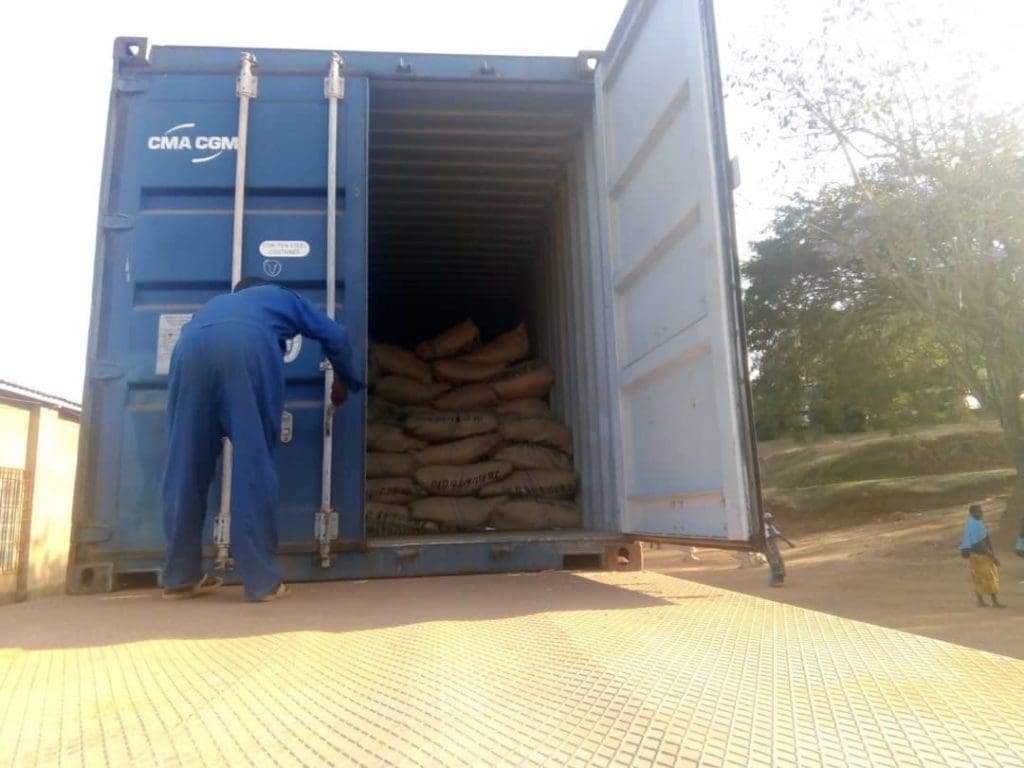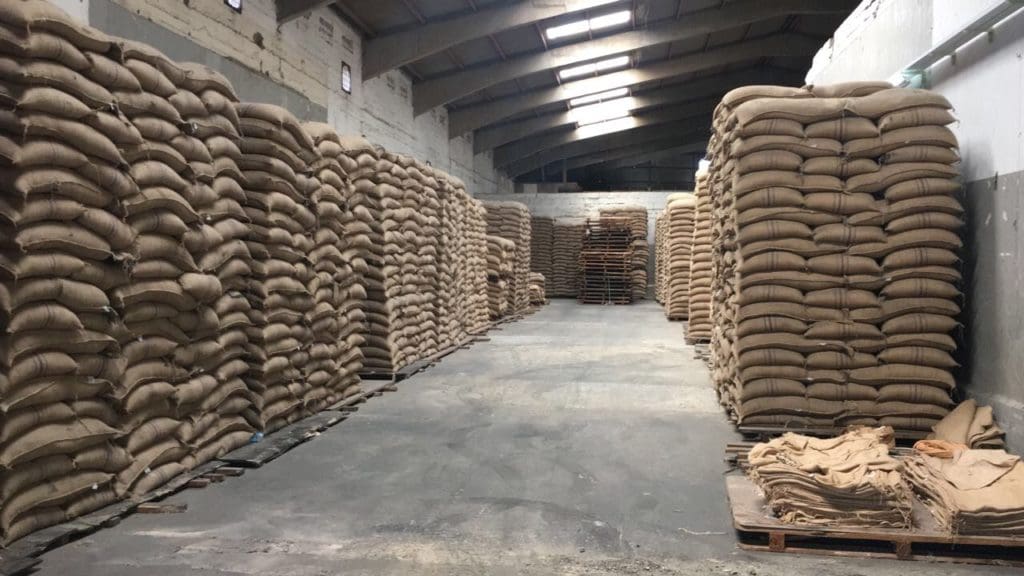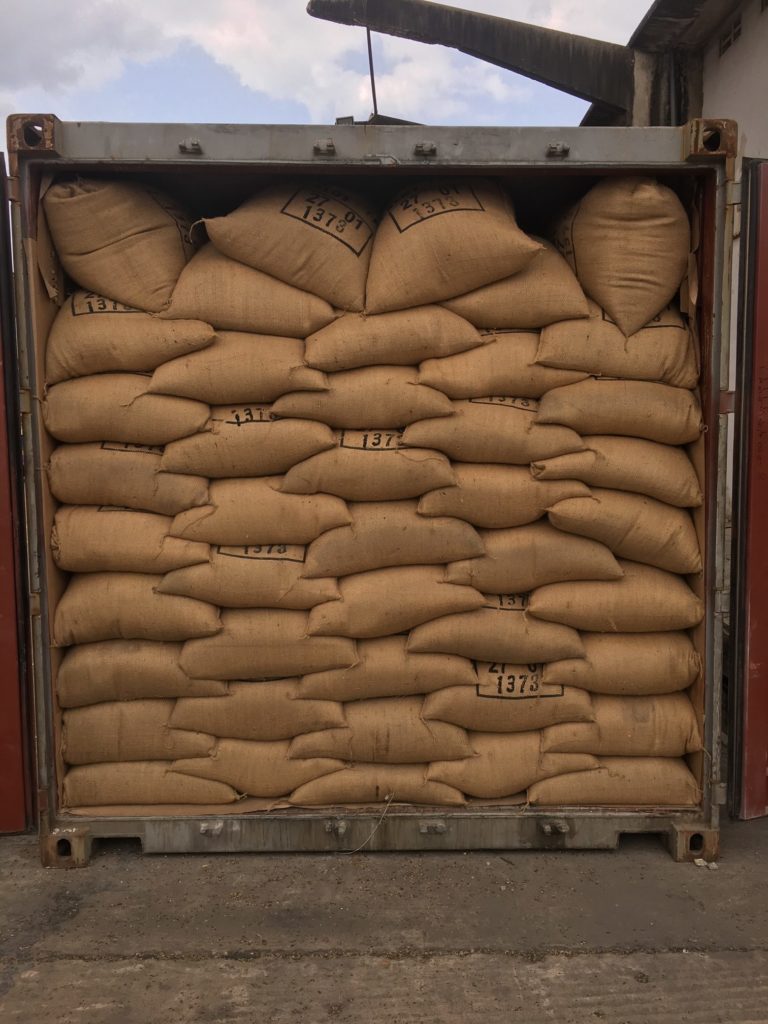Our second Burundi spotlight series post features an interview with Kathleen Tournel, the founder of Spoondrift Co. Ltd, a supply-chain partner specializing in overland logistics for green coffees in East Africa. For the first post in our Burundi spotlight series, see here.
Susan Heller Evenson: Kathleen, can you tell us a bit about yourself and how you became involved in logistics in East Africa?
Kathleen Tournel: It all began whilst studying Logistics Management in Antwerp, Belgium – my home. In 2013, I had met with a freight forwarding company and been offered an internship at their Mombasa office in Kenya; an experience that opened my eyes to Africa, and the personal and professional challenges that working there presents. Later that year, I completed my degree and signed with Mediterranean Shipping Company (MSC) in Antwerp, Belgium.
After two great years working in MCS’s export department, I found myself constantly thinking back to my time in East Africa. In a spur-of-the-moment decision, I contacted the Mombasa-based freight company to see if they had any work opportunities available. Luck was on my side when they confirmed that they had just opened a branch in Dar es Salaam, Tanzania, and were in need of someone to set up their export department. I didn’t need much convincing. One month later, I turned 25, resigned from my job, packed my bags, and moved to Tanzania!
SHE: Can you describe each step from mill to port?
KT: Although the process of transporting beans from mill to port may seem like a simple task, there are a number of players involved, and communication every step of the way is the key to success.
- Once the coffee is bagged and ready at the mill, the supplier moves the coffees to the mill’s warehouse or appointed 3rd-party warehouse.
- As soon as the coffee is ready for loading and the export documentation - issued by the local government - is prepared by the supplier at origin, Spoondrift allocates its local agent to complete export clearance and prepare the truck for collection.
- Under supervision of the supplier, customs officers and Spoondrift’s appointed agent, the coffee is loaded into the shipping line container or box body truck (depending on empty container equipment availability at origin) and moves to port of loading (POL).
As soon as the truck crosses the border from country of origin into Tanzania, our POL transit Green Coffee Warehouse prepares an empty container, lines it with craft paper and cross-stuffs the coffee directly upon arrival. The cross-stuffing and sealing of the container happens under the supervision of our local warehousing team and local customs officer. This ensures that the container is suitably packed and meets all export requirements.
Once transit documentation is ready and loading permission obtained, we move the container to port for loading onto the designated vessel.
SHE: What factors cause shipments to be delayed most often? What factors cause shipments to run on time?
KT: There are many factors which determine the time span of a coffee export shipment. However, in my opinion, I would say the correctness of the documentation at origin is THE key factor. The first question I ask our agent at origin when receiving a new shipping instruction is whether the documentation set is complete and in order.
Frequently, buyers are not aware what type of documentation is necessary from origin. They urge the transporters to send the truck and load the coffee to move it quickly. However, once it reaches the first border point, if the documentation is incomplete or incorrect, the truck may stand for days before the supplier gets all documentation rectified. This is a situation we try to avoid by sharing our local knowledge with our worldwide customers. This is how it is done in Africa, so let’s not act in haste! Do it once, and do it right. As they say in Swahili, “haraka haraka, haina baraka”, which roughly translates to “hurrying has no blessings”.
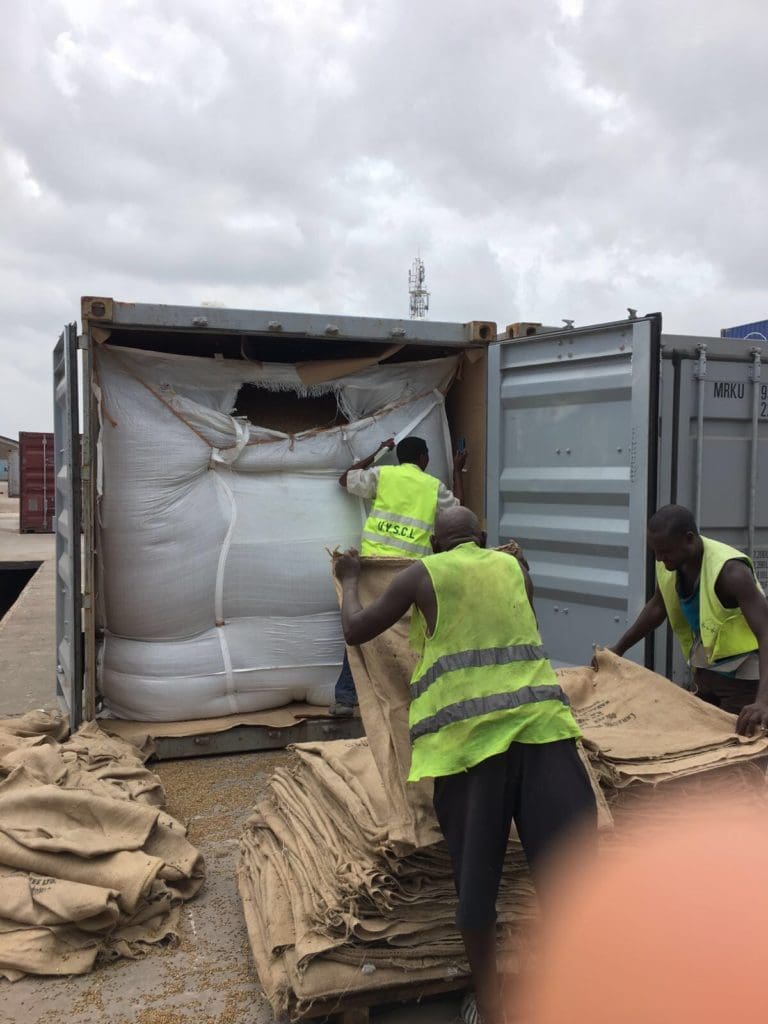
Cross-stuffing of the bagged coffee into bulk container at warehouse Port of Loading. Photo courtesy of Kathleen Tournel.
SHE: What do you think buyers should know about logistics in East Africa?
KT: Don’t try to force things your way. Educate yourself on how it is done locally and try to anticipate what challenges may arise.
SHE: Any observations about potato taste defect over the years?
KT: Although not eradicated, there has been a mild improvement year after year; with advances in handling procedures from bean to cup helping to reduce the incidence rate. There are no concrete solutions yet, however it is believed that increased education and technological advances will assist more in the future.
SHE: What do you find the biggest challenges you have faced into getting coffees out of Burundi in a timely manner?
KT: There is undeniably a consistent struggle with local authorities over changes to regulations and documentation requirements. Administrative roadblocks and ARFIC interferences are probably the most frustrating hurdles the Burundian exporters face.
Also, communication is key. By providing effective communication between suppliers, local government bodies and customs officials, the transit time for Burundian coffee out of the country can be dramatically improved.
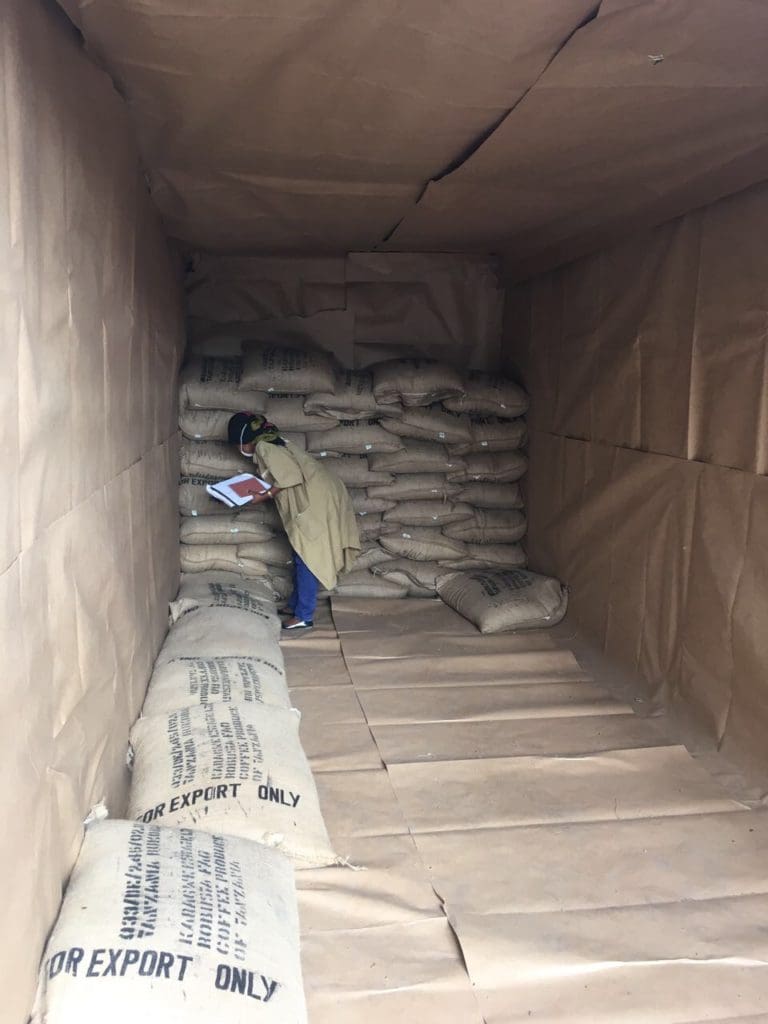
Lining the container and stuffing of the coffees for export at port of loading. Photo courtesy of Kathleen Tournel.
SHE: Where do you see the coffee market in Burundi heading?
KT: I hope that the market will survive the current crisis and be able to improve the seasonal yields. Burundi has the potential to become a large producer specialty coffee, however internal stability is needed for that to happen. With the coffee sector only partially liberalized about 10 years ago, the government is still very much attached and involved in the day-to-day management and regulations that affect the industry. I hope that these reigns are loosened somewhat, as coffee farming may be the only way out of poverty for a number of Burundian families.
SHE: How would you rate the quality of the Burundi coffee compared to the neighboring East African countries?
KT: I believe that Burundi’s best coffees easily out-rank those from Ethiopia or Kenya, however they lack the recognition and exposure to the international market. There is a wide variety of beans available in this small country, so there is sure to be a taste profile to suit every customer, and it’s only a matter of time until Burundi becomes more widely recognized in the region, and wider coffee trading circles.
SHE: What are the most exciting aspects of the coffee market in Burundi?
KT: The coffee farmers are genuine coffee people; they live and breathe their craft, and are proud of their product. The quality of the coffee is fantastic, and there is an immeasurable amount of untapped potential for growth in the area.
SHE: Thanks for your time, Kathleen! We really appreciate learning more about the fascinating and important link of overland logistics in the coffee supply chain.
If you'd like to learn more information about our current Burundi offerings--Kalico, Fairtrade COCOCA, and COPROCAME--or to receive a sample, please contact your Atlas Sales rep!
